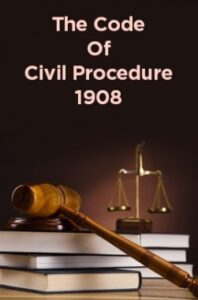CIVIL SUITS
 Civil Suit can be filed before a Civil Judge for seeking entitlement to a civil right. It is different from fundamental right and statutory rights against State Authorities. Civil Rights are claimed against private individuals or companies. Entitlement and claims which are related to but not limited to property, family share, land, dispute arising under a contract, and money.
Civil Suit can be filed before a Civil Judge for seeking entitlement to a civil right. It is different from fundamental right and statutory rights against State Authorities. Civil Rights are claimed against private individuals or companies. Entitlement and claims which are related to but not limited to property, family share, land, dispute arising under a contract, and money.
Procedure for trial under Civil Suits is codified in the Code of Civil Procedure 1908.
There are many types of civil suits, namely, Suit for Declaration of Title, Suit for Possession of Property, Suit for Partition of Property, Suit for Injunction, Suit for Recovery of Money, Suit for damages, Suit for Specific Performance of a Contract and any other civil remedy which can be sought from the court.
An order passed in the Civil Suit is first decreed against the opposite party who is called Judgment Debtor, and the Claimant is called the Decree Holder. Decree Holder then requires the decree to be executed by the court of law.
FIRST APPEAL AND SECOND APPEAL
In case, the Decree Holder or the Judgment Debtor are not satisfied with the order passed by the Learned Court, they can prefer an appeal under Section 96 of Code of Civil Procedure.
In case, there is still a substantial question of law left to be decided between the parties, one may prefer a Second Appeal under Section 100 of the Code of Civil Procedure.
REVIEW AND REVISION
Apart from above, a person who is aggrieved by the order can also file a review or revision before approaching the High Court in an appeal.
Review is filed before the same court and revision is filed before the Higher Court. However, the grounds for review are very limited.
Revision is available in those cases, where the order passed by the Learned Trial Court is not appealable.
APPEAL BEFORE THE SUPREME COURT OR SPECIAL LEAVE PETITION
Code of Civil Procedure provides for an appeal to be filed before the Hon’ble Supreme Court of India, however, in order for the civil appeal to be maintainable the Hon’ble High Court has to certify that there is a substantial question of law of general importance and the same needs to be decided by the Hon’ble Supreme Court.
However, in case, the Hon’ble High Court does not certify that about the presence of a substantial question of law of general importance. An aggrieved person can still approach the Hon’ble Supreme Court of India under Article 136 of the Constitution of India by filing a Special Leave Petition against any order passed by Hon’ble High Court.
YOU CAN ALSO EXPLORE OUR ARTICLES
YOU CAN VISIT OUR PAGE ON SUIT FOR POSSESSION